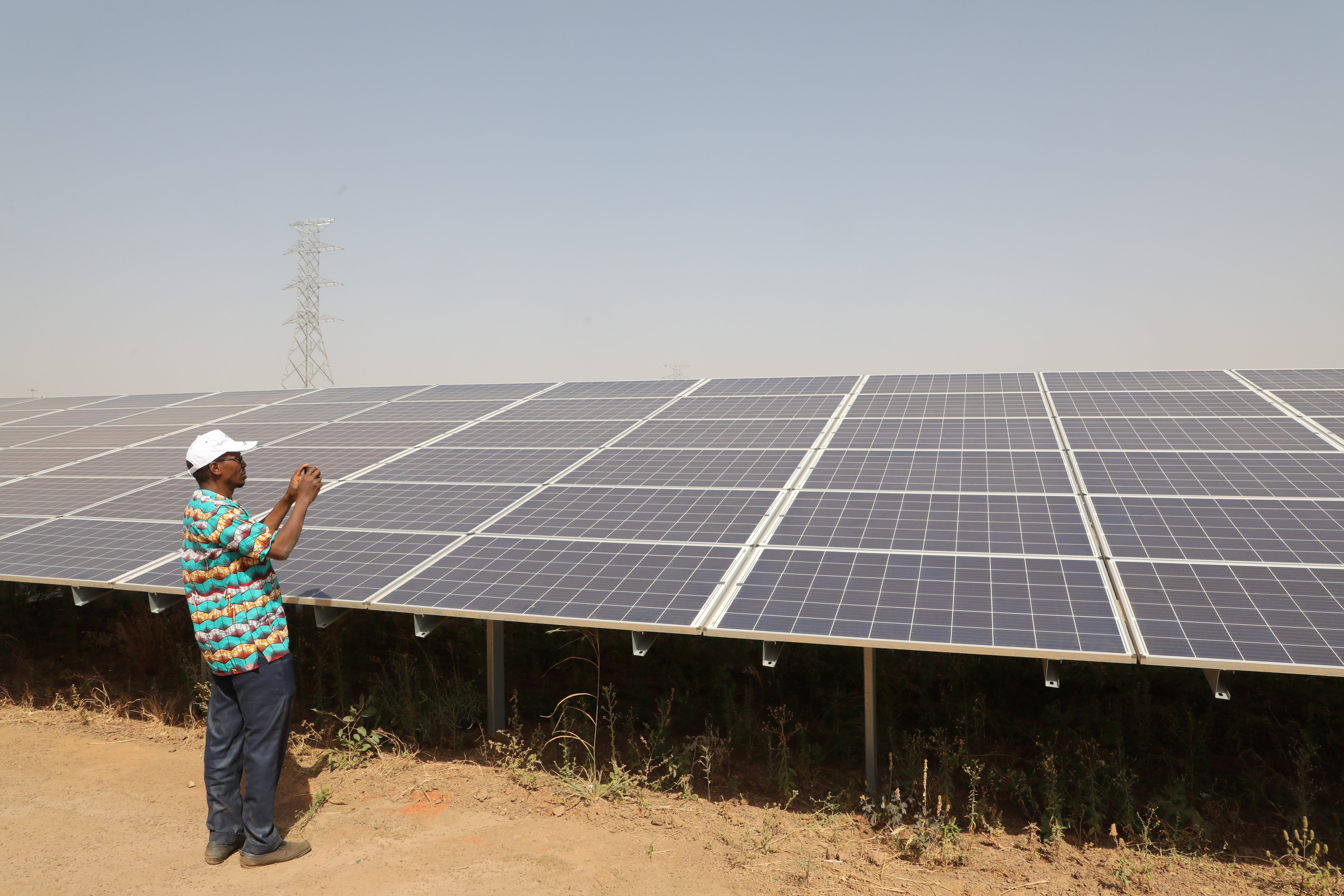Clean energy investment in poorer nations must increase seven-fold to meet world’s climate goals, says IEA
Investment in green energy in developing nations must increase from $150bn a year to $1trn by 2030 to put world on track to reach net-zero emissions by 2050, report says

A seven-fold increase in the amount of clean energy investment in poorer nations will be needed over the next decade if the world is to meet its climate goals, a new report says.
Funding for green energy projects in developing and emerging economies must rise from $150bn a year in 2020 to $1trn by 2030 if the world is to reach net-zero emissions by 2050, according to the analysis.
“Net-zero emissions” is the point at which the amount of greenhouse gases that humans release into the atmosphere is balanced by the amount they are able to remove.
Hitting net zero by 2050 will be key to limiting temperatures to 1.5C above pre-industrial levels, the aspiration set by countries under the landmark Paris Agreement in 2015.
The report, from the International Energy Agency, says that efforts to tackle the climate crisis in the coming decades will “increasingly hinge” on decisions made in developing and emerging countries, which together account for two-thirds of the world’s population.
CO2 emissions from energy in these countries are set to grow by five billion tonnes – around the same amount emitted by the US on an annual basis – over the next two decades unless urgent action is taken to aid the transition to clean energy, the report says.
“In many emerging and developing economies, emissions are heading upwards while clean energy investments are faltering, creating a dangerous fault line in global efforts to reach climate and sustainable energy goals,’’ said Dr Fatih Birol, the executive director of the IEA.
He added that governments must do more to ensure international public finance institutions help developing countries to transition away from using fossil fuels.
“Countries are not starting on this journey from the same place – many do not have access to the funds they need to rapidly transition to a healthier and more prosperous energy future – and the damaging effects of the Covid-19 crisis are lasting longer in many parts of the developing world,” he said.
The warning comes as major economies prepare to meet for the G7 summit in Cornwall this weekend, where the UK will attempt to convince countries to take more urgent action to address the climate crisis.
The G7 countries – the US, Japan, Germany, France, the UK, Italy and Canada – are increasingly facing calls to meet their long-standing promises on climate funding made to poorer nations.
Back in 2009, high-income countries promised to provide poorer nations with $100bn (£73bn) a year by 2020 to help them grapple with the climate crisis. But recent data shows this target is still far from being met.
The IEA’s analysis was carried out in collaboration with the World Bank and the World Economic Forum.
Join our commenting forum
Join thought-provoking conversations, follow other Independent readers and see their replies
Comments
Bookmark popover
Removed from bookmarks